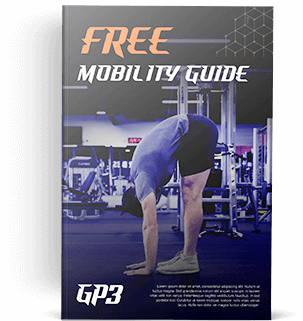Key Points:
1. We often overvalue the concrete at the expense of the abstract.
2. However, none of us would likely enjoy living in a world where the value of everything was concrete and definable.
3. Meditation can help us remember this.
Estimated reading time: 4-8 minutes
The last few weeks’ pieces have focused heavily on training and the more concrete subjects of sports and working out, so I think it’s high time we wade back into the realm of the abstract and esoteric. I’d love it if you joined me.
So…have you ever had an experience where retroactively, you suddenly understood something you didn’t at the time of going through it? Putting the pieces together hours or days after the fact can make us feel, smart, stupid, humbled, or any combination of many different emotions.
Today, we’re going to start with an example of a time this happened to me, except the gap between the initial experience and understanding was roughly eight years! It centers around a term that perfectly highlights an interesting difference between the general Eastern and Western approaches to a spiritual life.
I’m talking about wu wei.
Studying philosophy and meditation over the past couple of years led me to this term, and reading about wu wei reminded me of something that initially seemed totally insignificant. In 2013, I was traveling with two of my best friends to an entrepreneurial conference in Toronto. On the way, I asked one of them about the type of business the person who organized the event owned, and he replied something along the lines of, “It’s just some life coaching ‘woo-way’ bullshit.”
Confused, I inquired, “What is woo-way?” not realizing I was misspelling it in my mind. He gave an answer about the type of coaching this person provided lacking any actual substance or measurable benefit, and I chalked the phrase up to being little more than a slang term I’d never heard before.
Over the next couple of years, I started to hear various things derisively referred to as “woo-woo” or the shortened version, “woo.” The unifying thread was the same. For something to be labeled “woo,” it was probably anecdotal, unverifiable, and generally non-scientific. That said, I did listen to an interesting podcast where the host and guest went on a tangent debating how much “woo” was in science, so not even this most rigid of academic pursuits was safe!
Everyone could seem to agree on one point, however. If something was “woo,” it was bad. Or at least, it and the people who believed in or practiced whatever “it” was were worthy of mockery.
So, where did “woo” come from?
This term is Chinese in origin, and the correct spelling is wu wei. It’s a philosophical concept that can be translated as “inaction,” or as Alan Watts once put it, “The art of sitting quietly, doing nothing.”
We could also call it, “meditation.” Now, if you’ll recall from this piece, meditation is not so much a practice, but rather, a focus on “being” rather than “doing.” However, I’ll certainly grant that focusing on simply being looks a whole lot like inaction. It could easily be interpreted as sitting quietly, doing nothing.
What I find interesting, however, is that the concept of wu wei has been warped into a term of scorn. To be fair, it’s rather unlikely that everyone who has sneeringly labeled something as “woo” knows the term’s origins. But, it’s still interesting to observe that saying something like “that sounds pretty woo-woo to me,” is a stone’s throw away from, “That sounds as pointless and stupid as meditation.”
Perhaps there aren’t as many people who would phrase their disdain this way. However, it does seem that as a whole, we in the West value “being” a whole lot less than “doing.”
Being and Doing are Both Valuable
Let’s be clear. Neither doing nor being is inherently “better” than the other. And if you’ll recall, we’re never not being. It’s just that we tend to forget this and take being for granted. Further, doing isn’t bad, it’s simply exhausting when it becomes an obsession or addiction. To illustrate this, my daily retreats into simply being, through various meditative practices, have highlighted the ridiculousness of certain other habits I sometimes display.
For example, I often watch YouTube videos while brushing my teeth, put on podcasts while driving, or read online articles in between bites of a meal. These are all behaviors I’ll engage in when I’m not fully present or intentional about my choices. The ironic thing is that this isn’t just favoring being over doing, it’s layering doing on top of doing! Each one of these initial activities can be enjoyable in its own right. Yes, even brushing your teeth. But, the distraction-seeking behaviors that say, “This isn’t enough doing, let’s simultaneously do something else,” can and do lead to decreased enjoyment of any undertaking.
All this is to say that when we’re always doing, simply being feels uncomfortably foreign.
As an interesting aside, spellcheck suggested I change the end of the last phrase to “being uncomfortable feels foreign,” which has a totally different connotation. We’re so focused on doing that we’ve even programmed our technology to assess “simply being” as a mistake!
I think this is part of why “woo” is scorned in the West. Here, we tend to idolize the concrete and devalue the abstract. As a friend of mine jokingly said about this very blog, “There’s no time for nuance, Gregory! People have to die!” Dark as this may be, he’s probably not far off accurately describing an all-too-prevalent modern mindset. Today, the default setting is to attempt to divide people and causes into good and bad or winners and losers, and rush to label everything as the best or worst of all time.
And yet, nobody would really want to live in a world like that, would they? Imagine one with no music, art, books, movies, TV shows, or games. Or, imagine a world where all food was simply tasteless sludge with the perfect macronutrient balance. Everything from the enjoyment of a story to a particular taste profile of food have completely undefinable levels of value. It would be impossible to label any of them “right,” “wrong,” or universally good/bad.
They all offer limited practical utility, and most are created purely for entertainment and enjoyment. Plus, while their benefit can’t be quantified in concrete terms, we all intuitively understand that focusing entirely on the concrete and definable is a recipe for misery.
To paraphrase the comedian Bo Burnham in his hauntingly brilliant special, Inside, “I don’t know about you guys, but, um, you know, I’ve been thinking recently that, maybe, maybe the flattening of the entire subjective human experience into a…lifeless exchange of value…Maybe that’s, um, not good.”
Embracing the Abstract
So, if we want to practice reducing our overemphasis on the concrete, what can we do? The answer is simple. Consume as much mindless entertainment as possible.
Just kidding!
To bring this piece full circle, one option for what we can “do” lies with wu wei. Ironically, the action to try is inaction, or sitting quietly, doing nothing. It may feel uncomfortable at first, but remember that there’s no wrong way to meditate. Even five minutes per day could massively shift your perspective on what really matters, or “provides value.”
Give it a try and let me know what you think!
Before you go, I’d love to hear from you! Have you ever labeled something as “woo-woo?” What was it? Did you already know the term’s origins, or did you learn something new today? Reply to this email and let me know!

